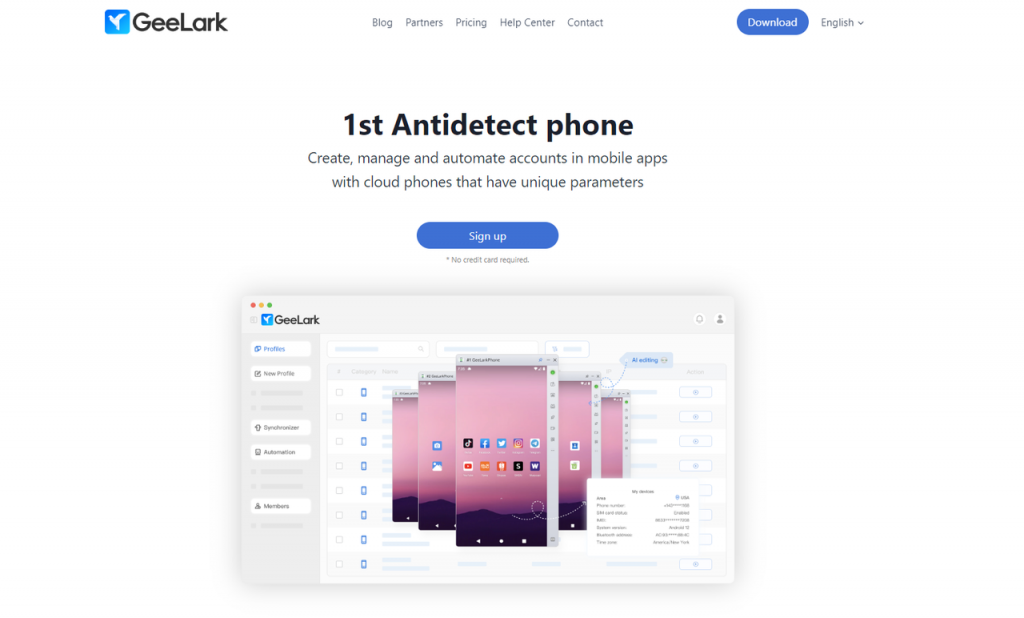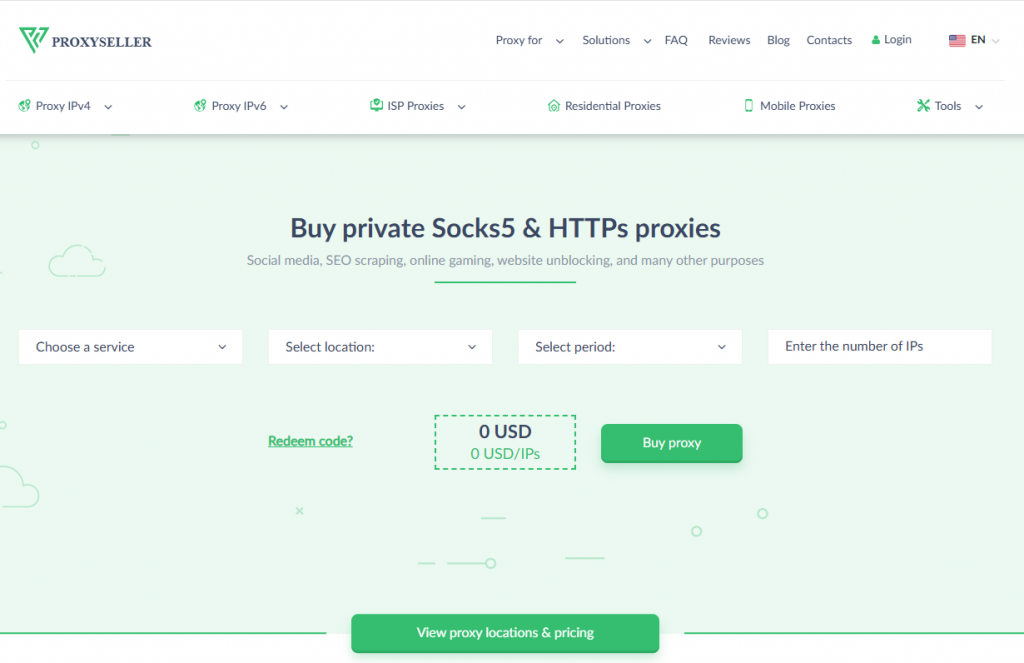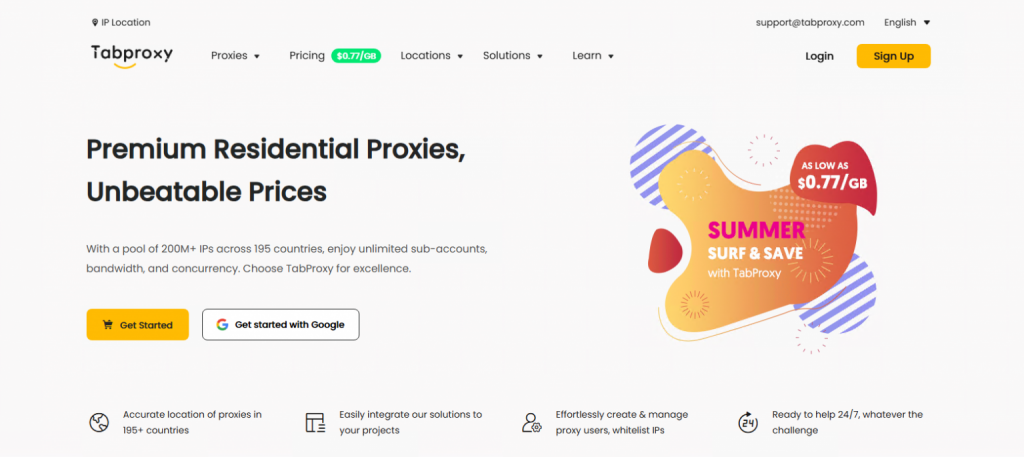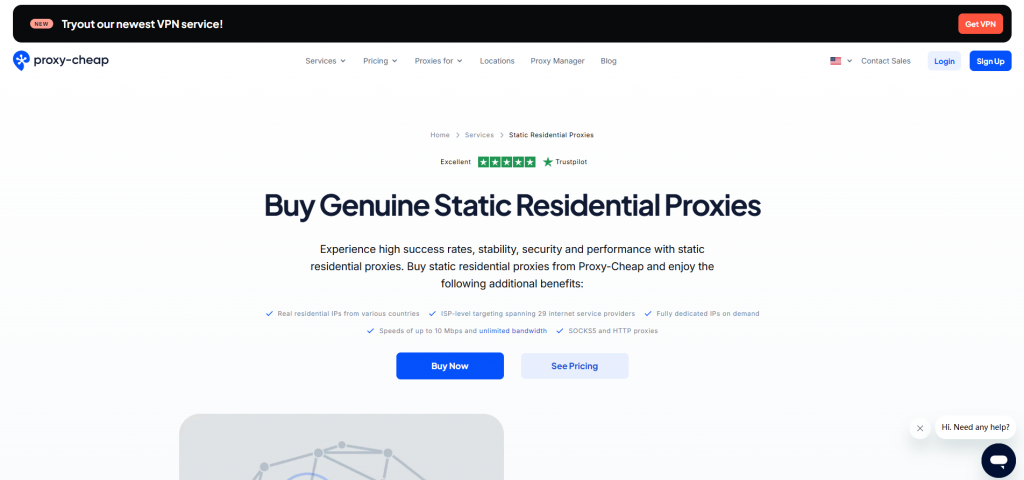What are Residential Proxies & Some Top Choices in 2024
Before we dive into the topic, let’s take a quick look at some proxy insights from GeeLark. Here’s some essential knowledge and latest information you won’t want to miss. Make sure to catch up:
- What Is a Proxy and How Does It Work?
- Datacenter vs Residential Proxies Demystified
- What is HTTP Proxy and How it Works
- What Are ISP Proxies? A Comprehensive Guide
- What is IP Rotation and How to Rotate Your IP Address
- Static vs. Rotating Proxies: Which is Right for You?
- SOCKS Proxy Explained: What it is and How to use
- Proxy or VPN: Comparing Differences and Choosing the Right Solution

What Are Residential Proxies?
Residential proxies are intermediary servers that use IP addresses assigned by Internet Service Providers (ISPs) to real residential devices. These devices can range from personal computers and routers to printers and various Internet of Things (IoT) gadgets. Unlike datacenter proxies, which use IP addresses from cloud servers, residential proxies utilize IPs that are associated with actual physical locations.
When you use one, your internet requests are routed through these real residential IP addresses. This means that to websites you visit, your traffic appears to be coming from a regular home user rather than a datacenter or commercial entity. This characteristic makes them highly effective for various online activities that require anonymity and credibility.
How Do Residential Proxies Work?
They operate through a sophisticated process that ensures user anonymity and credibility. When you initiate a web request using a residential proxy, your request first travels to the proxy server. This server then selects a residential IP address from its diverse pool and assigns it to your request. With this new identity, your request is forwarded to the target website, masquerading as traffic from a genuine residential user.
Once the website processes the request and generates a response, it sends this information back to the proxy server. The proxy server, acting as an intermediary, then relays this response to you. This intricate dance of data effectively conceals your true IP address, creating the illusion that your internet activity originates from a residential location associated with the proxy’s IP address.
This process not only protects your identity but also lends credibility to your online activities. Websites perceive your traffic as coming from a regular home user rather than a datacenter or commercial entity, which can be crucial for various online tasks requiring authenticity and trust. The seamless operation provides a powerful tool for maintaining privacy and accessing geo-restricted content while mimicking natural user behavior.
Rotating Residential Proxies
Many proxy services offer rotating IPs, which add an extra layer of anonymity and functionality. There are two main types of rotation:
- Session-based Rotation: In this model, the IP address changes with each new request or session. This is particularly useful for activities like web scraping, where you’re sending multiple requests in quick succession.
- Time-based Rotation (Sticky Sessions): Here, the IP address remains constant for a set period before changing. This is beneficial for tasks that require maintaining a consistent identity for a longer duration, such as social media management or certain types of online transactions.
Why Are They Trusted?
These proxies have earned a higher level of trust compared to their datacenter counterparts, and for good reason. At the heart of this trust lies their connection to real users and genuine residential addresses. Unlike datacenter proxies, which originate from cloud servers, traffics tied to actual Internet Service Provider (ISP) customers. This association with real people and places lends an air of authenticity to the traffic they generate.
We have made a thorough comparison between datacenter proxies and residential proxies. Read it now
The regulatory oversight that governs ISPs adds another layer of legitimacy. ISPs operate under strict regulations, which by extension, apply to the IP addresses they allocate. This regulatory framework provides an additional safeguard against potential misuse, further bolstering their trustworthiness.
Another factor contributing to their credibility is the natural geographical spread of these IPs. Unlike datacenter proxies, which often cluster around specific locations, residential IPs are dispersed across various regions, mirroring the organic distribution of internet users. This diversity makes the traffic appear more natural and less suspicious to websites and online services.
The limited availability of residential IPs also plays a role in their trusted status. It’s considerably more challenging to amass a large number of these IPs compared to datacenter IPs. This scarcity reduces the likelihood of abuse and makes it easier for websites to distinguish between legitimate and potentially malicious traffic.
Collectively, these factors make them less prone to being flagged or blocked by websites. Many online platforms view traffic originating from these IPs as more legitimate and trustworthy than that coming from datacenter IPs. This perception of authenticity is what makes them a preferred choice for many online activities requiring a high degree of credibility and anonymity.
When Should You Use Them?
Residential proxies have a wide range of applications across various industries and use cases:
Web Scraping: They’re ideal for gathering data from websites without getting blocked, crucial for market research, price monitoring, and competitive analysis.
Multi-accounting: Many people use them to manage multiple accounts for online businesses and income generation across various geographical locations.
Social Media Management: Managing multiple accounts without triggering security measures becomes easier with these proxies.
E-commerce: They’re useful for tasks like price comparison, inventory checking, and bypassing geographical restrictions on online stores.
SEO Monitoring: SEO professionals use them to check search engine results from different locations accurately.
Brand Protection: Companies can monitor for counterfeit products or unauthorized sellers across various regional markets.
Content Access: Such proxies can help bypass geo-restrictions on streaming services and other content platforms.
Top Residential Proxies Providers in 2024
When selecting a provider, it’s crucial to consider factors such as IP pool size, geographical coverage, rotation options, speed, reliability, ethical sourcing, customer support, and pricing. Here’s a curated list of top providers, each with its unique strengths:
Bright Data (formerly Luminati)

IP Pool: 72+ million
Starting Price: $8.4 per GB
Specialty: Most advanced features for all use cases
Special Deal: Want 55% off on Bright Data Residential Proxies? As a GeeLark user, you can use the code GEELARK55 or simply visit https://get.brightdata.com/geelark55 to claim your discount. Hurry – offer ends April 20th!
Smartproxy

IP Pool: 55+ million
Starting Price: $7 per GB
Specialty: Best balance of price and performance
Show discount for GeeLark users
Use this link to get 35% off on all of our products
Use this link to get 100MB free residential proxies
Proxy-Seller

IP Pool: Over 400 networks and 800 subnets
Starting Price: $3 monthly for proxies
Specialty: Reliable ISP Residential Proxies
Show discount for GeeLark users
Use the coupon code “GeeLark” in the order form for a 15% discount on IPv4, IPv6, ISP, and a 10% discount on Residential and Mobile proxies.
ABCProxy

IP Pool: 200+ million real residential IPs
Price: ABCProxy’s flexible billing system allows customers of different business sizes to find the right solution while reducing the cost of use.
- Rotating Residential IP: $0.045/IP, charged according to the number of IPs used
- Rotating Residential Proxy: $0.77/GB, charged according to the amount of traffic
- Unlimited Proxy: Provides exclusive proxy server and unlimited traffic
- Static Residential IP: Prices are customized according to demand
TabProxy

IP Pool: Vast pool of IPs, including dedicated pool for unlimited proxy plans
Starting Price:
- Rotating Residential Proxies – Start at $0.77/GB
- Unlimited Residential Proxies – Start at $79.2/day
- Static Residential Proxies – Start at $3/IP/week
Specialty: Affordable, ethically sourced proxies with unlimited usage
ProxyCheap

Specialty: Static residential proxies with genuine ISP IPs
Features:
- Real ISP IPs for long-term use
- Unlimited bandwidth with speeds up to 10 mbps
- Location-specific dedicated IPs available
- Support for 100+ concurrent threads
- SOCKS5 and HTTPS protocol compatibility
Special Deal: Use code WELCOME10 for 10% off
FAQs
What is a residential proxy?
A residential proxy is an intermediary server that uses IP addresses assigned by Internet Service Providers (ISPs) to real residential devices. When you use a proxy of this type, your internet requests appear to come from a regular home user rather than a datacenter or commercial entity.
How do residential proxies differ from datacenter proxies?
Residential proxies use IP addresses from real residential devices, while datacenter proxies use IPs from cloud servers. The former are generally more trusted and less likely to be blocked by websites because they appear as regular home users.
What are rotating residential proxies?
Rotating proxies of this kind change the IP address assigned to your requests either with each new session (session-based rotation) or after a set time period (time-based rotation or sticky sessions). This adds an extra layer of anonymity and functionality.
What are common uses for residential proxies?
They are commonly used for web scraping, ad verification, social media management, e-commerce tasks like price comparison, SEO monitoring, brand protection, and accessing geo-restricted content.
How do I choose the best residential proxy provider?
Consider factors such as IP pool size, geographical coverage, rotation options, speed, reliability, ethical sourcing, customer support, and pricing. It’s recommended to research thoroughly and possibly try out services before committing to a provider.
